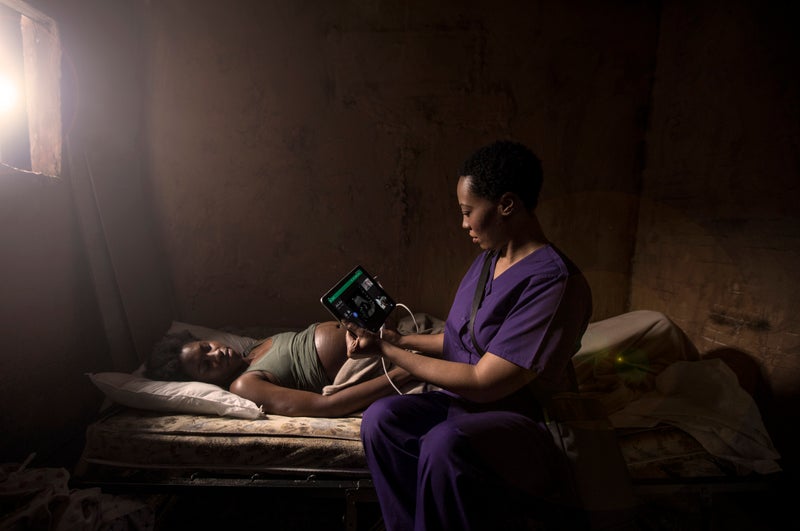Philips Foundation, RAD-AID Aim to Increase Ultrasound Access with Remote Training Model
 The Philips Foundation and RAD-AID International announced a multi-year cross-continental partnership to promote access to diagnostic ultrasound services in ten countries.
The Philips Foundation and RAD-AID International announced a multi-year cross-continental partnership to promote access to diagnostic ultrasound services in ten countries.
RAD-AID International will leverage the virtual care capabilities of Philips ultrasound solutions to provide a highly scalable, remote ‘train-the-trainer’ model to improve access to diagnostic and point-of-care ultrasound through curriculum-based education and clinical hands-on teaching. With these solutions, ultrasound experts, such as radiologists and sonographers, can communicate with training program participants thousands of kilometers away via voice, video and text messages, view the ultrasound images taken in real time, and remotely demonstrate equipment settings during guided ultrasound exams if necessary.
“By adopting a ‘train-the-trainer’ model, first-generation healthcare workers can contribute to the education of the next generation of ultrasound practitioners,” said Daniel J. Mollura, President and CEO of RAD-AID International. “This innovative and ambitious initiative has a remarkable reach, and is both sustainable and scalable. We at RAD-AID look forward to working with the Philips Foundation in the coming years to improve the lives of millions of people through real-time ultrasound education and remote support.”
“Despite the well-known benefits of early detection and timely treatment, diagnostic imaging is not available in many rural and remote areas where resources are scarce,” said Margot Cooijmans, Director of the Philips Foundation. “Through this collaboration with RAD-AID International, who provide a high quality of service delivery, we can offer equipment and enable remote training in ten underserved areas, with a clear focus on increasing the number of patients who benefit from remote access to professional radiologists. Enhancing technology to improve healthcare for underserved populations defines this collaboration and is at the heart of our mission.”
Philips Foundation, Philips and RAD-AID International all have a track record of improving access to ultrasound by training local health workers. For example, in recent years, Philips Foundation has developed several innovative models to address various gaps in access to ultrasound solutions. Together with healthcare experts, non-governmental organizations, and social entrepreneurs, it has pioneered task-sharing models and explored aspects such as delivery, referral, and income models to enable access to ultrasound for prenatal care. Philips innovates in connected care solutions that support healthcare systems and improve access to care for millions of people across the world. The company has set up tele-ultrasound programs that link specialists around the globe with local physicians in underserved communities to train them and enable them to provide potentially life-saving ultrasound scans to pregnant women.
This multi-year initiative aims to reach around 50 million people across Africa, Asia, North America, Latin America, and the Caribbean, including Ethiopia, Ghana, Grenada, Guyana, Kenya, Laos, Nepal, Malawi, Tanzania, and the US. During the project’s initial phase, RAD-AID International is deploying the model in the first five high-impact regional sites. Learnings from phase-one deployment will help Philips Foundation and RAD-AID International co-create new educational strategies for second-phase deployment.